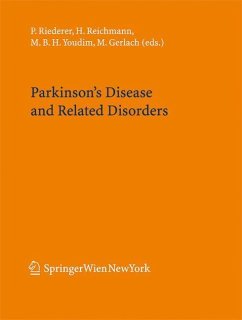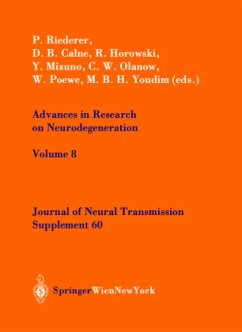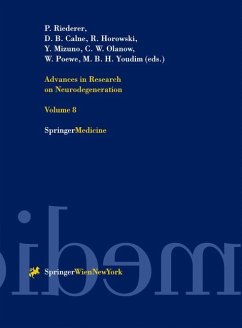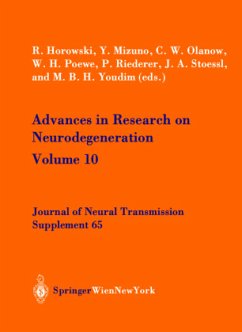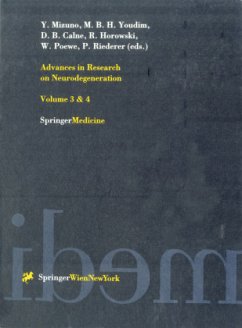
Advances in Dementia Research

PAYBACK Punkte
77 °P sammeln!
Dementia is a major health problem that becomes increasingly common with advancing age. Despite recent progress in neurobiology and molecular genetics, the aetiology and pathogenesis of most dementia disorders are still poorly understood, and early exact diagnosis as a prerequisite of effective treatment needs to be improved. The present volume includes the contributions of renowned experts in the field of neurodegeneration presented at the International Symposium "Ageing and Dementia 1999", September 24-26, 1999 at Graz. It focusses on genetics, epidemiology, new neuroimaging techniques, and ...
Dementia is a major health problem that becomes increasingly common with advancing age. Despite recent progress in neurobiology and molecular genetics, the aetiology and pathogenesis of most dementia disorders are still poorly understood, and early exact diagnosis as a prerequisite of effective treatment needs to be improved. The present volume includes the contributions of renowned experts in the field of neurodegeneration presented at the International Symposium "Ageing and Dementia 1999", September 24-26, 1999 at Graz. It focusses on genetics, epidemiology, new neuroimaging techniques, and the role of vascular, immunological and other mechanisms including oxidative stress and estrogens in the development of neurodegeneration and dementia. Recent developments in diagnosis and therapy of Alzheimer disease and related disorders are reviewed and future therapeutic approaches are discussed. Thus, this volume provides a timely overview of most recent developments in dementia research and treatment strategies of dementia disorders.




